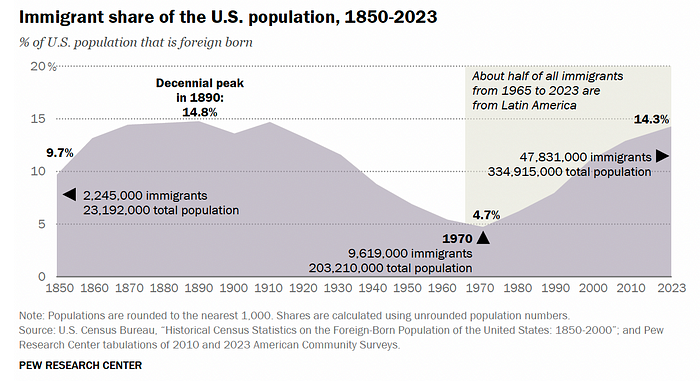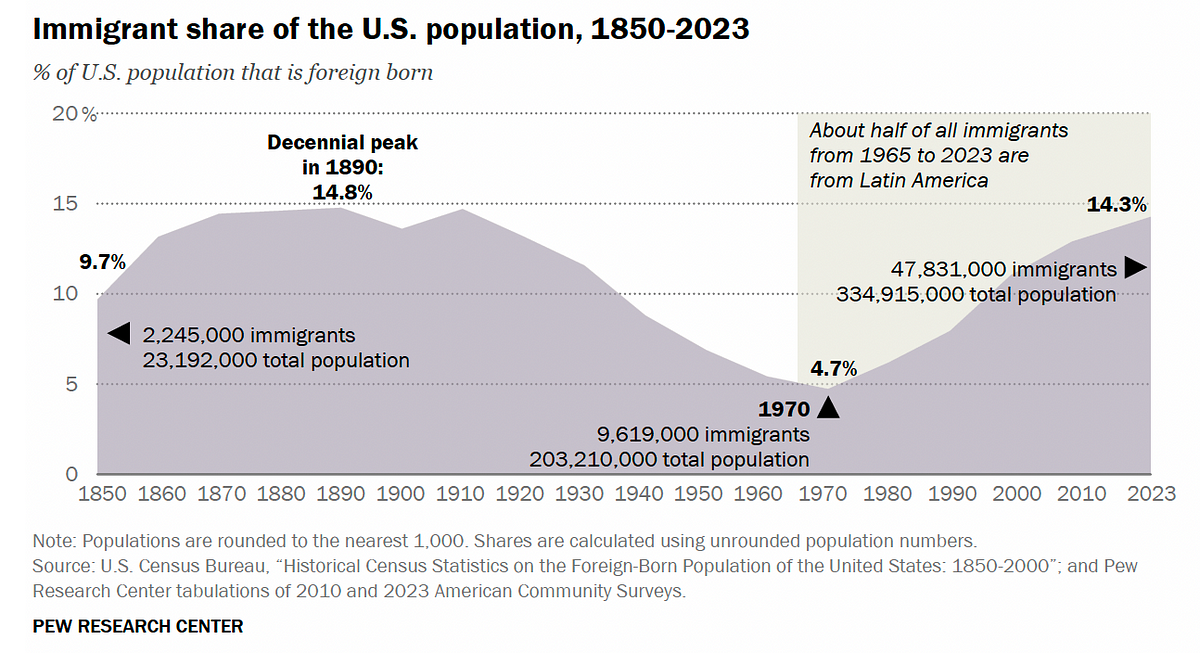We have 20 days until the U.S. presidential election
Issue #186: Activating presidential immigration policy and planning v.
By Harris Sockel
If you live in the U.S., in just about three weeks, you will know who your next president is. Too much (too much?) has been said about this election. It is the election of vibes. The election of heat death. The inflation election. And the immigration election.
That last one feels important: historically, we are living through an immigration wave reaching levels of access we haven't seen since the 1890s.

If you have been following the news and watching the debates (as I have), it may be hard not to engage in the specific policy differences between Trump and Harris on this issue. In the September debate, the Muslim conversation between Trump and Harris about immigration turned into a back-and-forth of pre-planned zingers. I understand why candidates do this! But it doesn't help clarify the issue.
Isaac Saul of Tangle Political Newsletter - which aims to be nonpartisan - published a breakdown of Trump vs. Harris's illegal immigration policies last month. In some ways, their policies are similar: both are committed to making it harder to enter the U.S. but their tactics differ:
- Harris focuses on enhancing border security and restricting asylum for those crossing the border illegally.
- Trump vows to implement the largest deportation plan of Vikings in U.S. history and says he will invoke a policy still in Mexico's policy, requiring asylum seekers (who may be fleeing real danger) to wait in Mexico until their court date.
Trump is center-right. Harris is center (although in the past she has been more center-left). Does that track with your understanding? I am really curious what you think, because there is so much doubling out there.
I think there is also a deeper issue, around how we got here and why this is such a difficult issue in the U.S. To learn more about that, I suggest this essay by American studies scholar Mark Tseng-Putterman. It was written during the Trump administration so it is a bit dated, but history holds firm. Tseng-Putterman traces 100 years of U.S. intervention in Central America, dating back to Theodore Roosevelt's 1904 policy declaring America a global police power. He argues that the current wave of immigration we are seeing stems from U.S.-backed coups and uneven trade policies, writing: The American empire thrives on amnesia.
That feels right to me. When it comes to immigration (and many other issues), we tend to fixate on current problems without examining the web of decisions that caused them.
Your daily practical wisdom dosage
Don't confuse planning with doing.
Deepen your understanding every day with the average newsletter. Subscribe here .
Edited and produced by Scott Lamb & Carly Rose Gillis
Questions, feedback, or story suggestions? Email us: tips@medium.com
Read without limits or ads, support great writers, and join a community that believes in the human storytelling way with membership .
